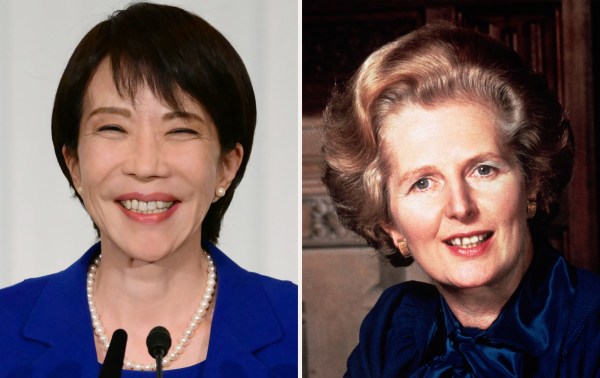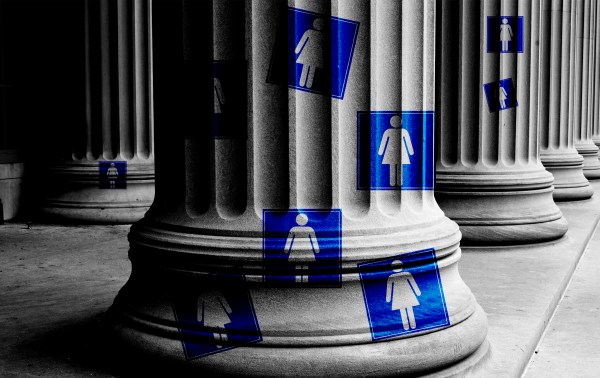Turn any article into a podcast. Upgrade now to start listening.
Premium Members can share articles with friends & family to bypass the paywall.
Unless there’s an excuse to do something together—golf, watch fights, camp—men tend to be less social creatures. Serious academics now warn of a “friendship recession” plaguing young guys. Data from the Survey Center on American Life found that the number of men saying they don’t have a single close friend quintupled from 1990 to 2021.
It's an uncontroversial point: Men are increasingly lonely, and this leads to higher rates of addiction, suicide, and political alienation.
With all of this in mind, it’s perhaps not surprising that an academic article by a pair of Stanford University researchers—exploring the emotional impact more isolated men have on their partners—recently became the latest controversy in America’s simmering gender wars.
The paper, “Theorizing Mankeeping,” lived within the small world of academic publishing after its release last October. Apart from a quick story in Forbes, the concept of mankeeping—defined in the paper as “the resulting labor that women take on in order to shore up losses in men’s social networks”—didn’t seem to register with the broader public.
That is, until a string of articles and commentators breathed new life into it in June. A HuffPost article, shared on BuzzFeed days later, used mankeeping as a way to argue men’s floundering social networks were “the real reason women are stepping away from dating and relationships.” The Guardian picked up the concept with the headline “Mankeeping: why single women are giving up dating,” while Vice ran an article titled “Mankeeping Is Why Women Are Done With Dating.” And in July, the New York Times published “Why Women Are Weary of the Emotional Labor of ‘Mankeeping.’”
There was a predictable rush to condemn and take sides, the familiar grooves of modern gender warfare. Either you saw complaints about “mankeeping” as an outgrowth of tone-deaf campus progressives or comeuppance to men and the patriarchy. But important questions were missed in the maelstrom—about what the original article actually said, the authors behind it, and the journal that published it.
Angelica Ferrara, the article’s lead author and a psychologist at Stanford University, was open to corresponding about mankeeping—and the media reaction to the concept.
The field of psychology, she said, has found significant evidence suggesting that people thrive when they have more than one person to confide in—and her paper, she wrote in an email to The Dispatch, asks questions about what happens when men have their partner as their only confidant.
“I’m not an expert in media framing of gender issues, and I prefer not to wade into areas beyond my expertise,” she wrote. “I’ll regretfully admit that some of the coverage, titles like those in Vice suggesting that mankeeping is why women are giving up dating, are empirically untested and appear engineered for clicks rather than good faith conversation.”
Still, she emphasized that she doesn’t view all coverage of mankeeping as bad or done in bad faith.
“The biggest thing that is missed about the mankeeping work by most media outlets is that there is nothing wrong with being your partner’s central emotional supporter—this is normal and no reputable psychologist would suggest that partners refrain from disclosing their lives to each other,” she wrote. “Mankeeping isn’t about scorekeeping or encouraging animosities between genders; it is about naming a type of work that often feels unreciprocated and invisible, and questions whether social ecosystems that skew toward relationship-exclusive reliance serves anyone well over time,” she added.
There are parts of Ferrara’s paper that don’t sound empathic to the ear, starting with the term itself. In the paper, Ferrara describes mankeeping as a version of “kinkeeping,” a phrase used to describe similar work done within families. However, as Jesse Singal, a Dispatch contributor, wrote on Substack, the idea that sympathetic academics would call related struggles “womankeeping” or “gaykeeping” is difficult to picture.
Indeed, much of the article does not read as sympathetic. Men’s struggles, for example, are largely framed around how they impact women—and therefore the paper gives the impression that helping men is worthwhile mainly where it advances gender equality, not in and of itself.
“To conceptualize men’s thinner social networks as a mere symptom of gender inequality, or a ‘male issue,’ rather than a structural component of how patriarchy is upheld and reproduced, is to miss a critical avenue for social change,” the paper argues.
University fraternities are described critically in the paper, and while male-only gatherings are encouraged, that encouragement comes with a side of caution. The paper does positively describe some men’s groups—like EVRYMAN and Beyond Equality—but frames them primarily as a means of deprogramming harmful behavior.
“Several of these groups specifically encourage men to participate in, and learn how to respond to, emotional disclosure with other men while critiquing patriarchy as a primary source of male strife and exposing women’s negative experiences with men who endorse dominant forms of masculinity,” the paper argues. “We believe these initiatives should be funded at higher levels and at a wider scale.”
James Nuzzo, a men’s health researcher based in Perth, Australia, called Ferrara’s frustration with media coverage of mankeeping “disingenuous backtracking” and saw her response to the fallout as an example of “how irresponsible many academics are in not thinking through their ideas and the impact that those ideas might have on society.”
Contrary to Ferrara’s response, Nuzzo sees the paper actively encouraging “animosity between the genders” and argues the concept of “mankeeping” stigmatizes normal aspects of healthy relationships by rooting caring for one’s partner in politically charged terms.
“Because Ferrara appears to be interested only in women’s side of the story and framing the story as one of ‘patriarchy’ and ‘gender inequality,’ then future research on ‘mankeeping’ is going to be rigged from the start,” Nuzzo said in an email to The Dispatch. “It will capture only the side of the story that Ferrara wants it to capture.”
I asked Ferrara if she’d be open to responding to these critiques, but she declined to comment.
Ferrara’s paper was published in Psychology of Men & Masculinities, the flagship journal of Division 51, the American Psychological Association’s group dedicated to men’s mental health. Division 51 was formed in 1995 with a mission to empirically study “how gender roles relate to the physical and emotional health of men and boys” and “enhance opportunities for men and boys to experience their full human potential and to lead healthier lives.”
Lead editor Joel Wong sees the journal’s role above the political fray. “I’m not trying to make the journal more liberal or more conservative. I’m more concerned with the science,” he wrote in an email to The Dispatch. Wong, a psychology professor at Indiana University, Bloomington, said the major factors the editorial board uses to weigh submissions are “scientific rigor” and “substantive scientific contribution.” He pointed to a recent special issue focused on male victims of domestic abuse as proof “topics that are underrepresented in our journal tend to be [of] greater interest to me.”
While he appreciated that Ferrara’s paper inspired strong reactions, he wanted to underscore “that mankeeping is a theory” that further research would have to validate and test.
“I encourage readers to keep an open mind and to wait for more research on this theory before passing judgment,” he wrote. “It is possible that none, some, or all of the hypotheses that the authors proposed will be supported. But let’s wait for more research on this theory and allow the science on this topic to unfold.”
In 2019, a team of Division 51 researchers published the body’s first-ever guidelines for psychologists working with men and boys. The report, which took over a decade to create, received a lot of pushback, with many critics arguing it stigmatized masculinity and would make men, already uncomfortable with seeking psychological help, more so.
Critics also tended to agree that the messaging surrounding the report’s release was, in short, bad.
“APA’s new Guidelines for Psychological Practice With Boys and Men … draw on more than 40 years of research showing that traditional masculinity is psychologically harmful and that socializing boys to suppress their emotions causes damage that echoes both inwardly and outwardly,” one passage of the press release announcing the guidelines reads.
Despite the guidelines containing more compassionate language at times—at several points, clinicians are encouraged to be aware of “one’s stereotypes and biases against boys and men”—the guidelines are, overall, awash with negative-sounding language: “hegemonic masculinity,” “oppression,” “privilege,” “masculinity ideology.”
Chris Ferguson, who describes his political views as “center-left,” was an APA member on the body’s Council of Representatives (he compares it to the lower chamber of Congress) when he first saw the document.
“I read it and kind of go: What the hell is this?” he said. “It seems a little slanted.”
Ferguson, a psychology professor at Stetson University in Florida, dug into the evidence base behind the guidelines and put together a series of articles raising his concerns about it.
“I was trying to say, if your concern is that many men aren’t getting therapy when they need it—which is kind of in the report—then disparaging masculinity is a bad way to get them into therapy,” he said. “Saying that patriarchy and privilege, this sort of stuff, should be at the center of therapy, not a lot of dudes are gonna want to do that.” Ferguson later resigned his membership, writing in Quillette that the APA “no longer functions as an organization dedicated to science and good clinical practice.”
In response to criticism, two psychologists involved in the creation of the guidelines explained in Newsweek that the purpose of those guidelines was to address the negative effects of what they deemed overly rigid socialization. “The way we socialize young boys into men can lead to problems when men are not able to be flexible in what they believe it means to be a man,” the authors wrote.
University of Kansas psychology professor Brian Cole said the episode was “absolutely an inflection point” in the history of Division 51. Cole, whose term as president of Division 51 expired in August, said that in the years after the release of the guidelines, “there were a lot of conversations internally about messaging and about what the public perception of these things was and how we need to improve our ability to communicate with folks.”
Cole was already a few years into his PhD before he first thought about making the study of men’s mental health the focus of his career. Part of his program’s requirement was a mandatory course on the psychology of gender, and to him, the class readings “didn't really seem to reflect the men in my life.”
“I come from a working-class background; the men in my life were police officers and electricians and worked in grocery stores,” he said. “They were very traditional men in a lot of ways, but they were emotionally expressive and they showed affection and they were good fathers and good partners. I just felt there was a disconnect in what I was reading in the literature and what I was experiencing from the men in my life.”
Cole is now part of a new wave of academics advocating for positive masculinity, which focuses on traditionally masculine attributes like self-reliance, heroism, and even humor—that is, attributes perceived as more constructive than destructive—as ways to understand and help men. The inroads Cole and others have made are part of a larger, still unfolding, generational shift.
“When I first started doing this work, I got a lot more pushback within the Division,” Cole said. “There would be conversations about whether or not positive masculinity was even a thing. It never really sat well with me. Now I think those folks are a lot quieter.”
Cole credited Daniel Ellenberg, Division 51’s president in 2021, with providing leadership that represented a turning point for the group. “Daniel played a really large role in that,” Cole said. “He really tried to challenge us to have difficult conversations around this.”
Ellenberg, the founder of the Men and Boys Compassion Coalition, joked that his relationship with the APA began as “an impulse buy.” He remembers being an APA member for years, but was never intimately involved before attending an event in Washington, D.C. He ended up connecting with some of the field’s leading researchers, and he was eventually encouraged to run for Division president and got the gig just as the pandemic struck.
“Every president gets to choose a theme, and mine was Creating Connection and Community through Courageous Conversations,” Ellenberg said. As part of this theme, he brought in speakers such as Warren Farrell, a Bay Area feminist turned founder of the American men’s movement. On another occasion, he brought in a speaker “more in the men’s rights activism side [which] triggered some of the ideologues.”
“I always thought the best ideas will win if you can present them well,” Ellenberg said. “So why would you not talk to people? I see, generally, just so many people unwilling to have conversations and it’s very frustrating to me.”
In some sense, Cole picked up Ellenberg’s mantle: His own initiative emphasized Positive Psychology for Boys and Men and he continues working to mainstream those ideas within Division 51.
In 2021, Cole and three other team researchers reviewed almost 600 papers in Psychology of Men & Masculinities, across the last nearly two decades, and found just 15 percent had a positive focus. The journal, the team wrote, was primarily focused on “male pathology and identifying men’s deficits and problems” and found no uptick in articles with a positive focus over the years.
Cole was torn when asked how the idea of mankeeping fit within the journal’s mandate. On one hand, he saw how the article “fit within the context of the field.” But his personal reaction, he said, “is that I would never consider supporting my partner to be labor…professionally, I just keep going back to the notion that we understand what the challenges are; it’s not news that men are feeling isolated and disconnected and that as men get older, their primary source of social support is often their partner.”
“We need to spend more time understanding why that happens, and I think a better way to do it, a good way to do it, is to talk with men who are doing this stuff well,” he continued. “We know there’s a problem. Let’s start to figure out a solution.”
Cole is optimistic that the space is changing for the better. He spoke highly of Wong’s leadership of Psychology of Men & Masculinities and the incoming Division 51 President Sonia Molloy.
“I do feel like there’s a shift,” Cole said. “But it has been a very long road.”






Please note that we at The Dispatch hold ourselves, our work, and our commenters to a higher standard than other places on the internet. We welcome comments that foster genuine debate or discussion—including comments critical of us or our work—but responses that include ad hominem attacks on fellow Dispatch members or are intended to stoke fear and anger may be moderated.
With your membership, you only have the ability to comment on The Morning Dispatch articles. Consider upgrading to join the conversation everywhere.